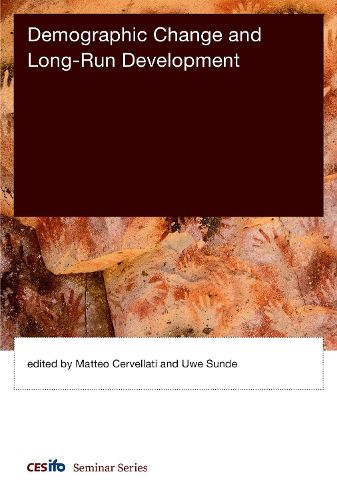Readings Newsletter
Become a Readings Member to make your shopping experience even easier.
Sign in or sign up for free!
You’re not far away from qualifying for FREE standard shipping within Australia
You’ve qualified for FREE standard shipping within Australia
The cart is loading…






Recent approaches to economic demography, investigating the effect of the transition to low mortality and low fertility on economic development.Over the last two hundred years, mortality and fertility levels in the Western world have dropped to unprecedented levels. This demographic transition was accompanied by an economic transition that led to widespread education and economic growth after centuries of near-stagnation. At the same time, other changes have occurred in family structures, culture, and the organization of society. Economists have only recently begun to take into account the demographic transition from high mortality and high fertility when modeling and researching economic development. This CESifo volume reviews recent approaches to economic demography, considering such topics as the bio-geographic origins of comparative development differences, the role of health improvements and mortality decline, as well as physiological, familial, cultural, and social aspects. After an overview of the study of demography and economic demography, the chapters cover subjects including the Neolithic era and the period of the formation of states and social institutions; longevity and economic growth; household decision making and fertility; land inequality, education, and marriage in nineteenth century Prussia; and caste systems and technology in pre-modern societies. The book concludes with a call for further investigation of the institutional and social factors that influence demographics and economies, suggesting that unified growth theory offers a potential approach to studying development. Contributors Matteo Cervellati, Francesco Cinnirella, David de la Croix, Carl-Johann Dalgaard, Matthias Doepke, Elena Esposito, Davide Fiaschi, Tamara Fioroni, Oded Galor, Boris Gershman, Erik Hornung, Fabian Kindermann, Nils-Petter Lagerl f, Holger Strulik, Uwe Sunde, David N. Weil
$9.00 standard shipping within Australia
FREE standard shipping within Australia for orders over $100.00
Express & International shipping calculated at checkout
Stock availability can be subject to change without notice. We recommend calling the shop or contacting our online team to check availability of low stock items. Please see our Shopping Online page for more details.
Recent approaches to economic demography, investigating the effect of the transition to low mortality and low fertility on economic development.Over the last two hundred years, mortality and fertility levels in the Western world have dropped to unprecedented levels. This demographic transition was accompanied by an economic transition that led to widespread education and economic growth after centuries of near-stagnation. At the same time, other changes have occurred in family structures, culture, and the organization of society. Economists have only recently begun to take into account the demographic transition from high mortality and high fertility when modeling and researching economic development. This CESifo volume reviews recent approaches to economic demography, considering such topics as the bio-geographic origins of comparative development differences, the role of health improvements and mortality decline, as well as physiological, familial, cultural, and social aspects. After an overview of the study of demography and economic demography, the chapters cover subjects including the Neolithic era and the period of the formation of states and social institutions; longevity and economic growth; household decision making and fertility; land inequality, education, and marriage in nineteenth century Prussia; and caste systems and technology in pre-modern societies. The book concludes with a call for further investigation of the institutional and social factors that influence demographics and economies, suggesting that unified growth theory offers a potential approach to studying development. Contributors Matteo Cervellati, Francesco Cinnirella, David de la Croix, Carl-Johann Dalgaard, Matthias Doepke, Elena Esposito, Davide Fiaschi, Tamara Fioroni, Oded Galor, Boris Gershman, Erik Hornung, Fabian Kindermann, Nils-Petter Lagerl f, Holger Strulik, Uwe Sunde, David N. Weil